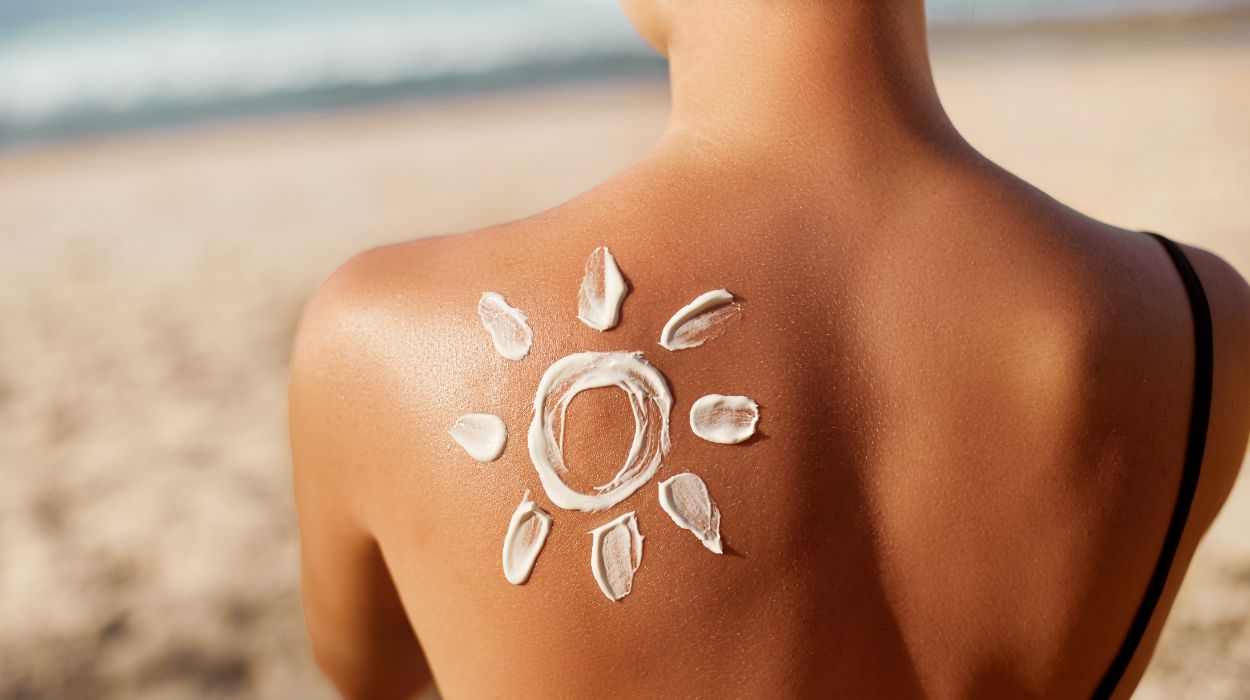We all benefit significantly from vitamin D[1] for our general health and well-being. It is extremely crucial for several body processes, including controlling the immune system, fostering cell proliferation and minimizing inflammation.
Additionally, because it aids in absorbing calcium and phosphorus from our diet, vitamin D is essential for keeping strong bones and teeth. Despite the critical function that vitamin D serves in our bodies, many people lack this necessary component.
Around 1 billion people globally have insufficient levels of vitamin D in their bodies according to a study. Several health problems, including weak bones, weak muscles, and a higher risk of developing chronic illnesses like cancer, heart disease, and diabetes, can be brought on by this deficiency.
It’s essential to ensure we obtain enough of this mineral to prevent vitamin D insufficiency and keep our bodies functioning at their best. Although the primary source of vitamin D is sunlight, there are many other ways to get it.
How To Get More Vitamin D?
Even though vitamin D is crucial for maintaining health, a lot of people still don’t get enough of it, fortunately, we are going to learn how to get vitamin D.
There are many ways to obtain vitamin D[2]. Here are 4 methods you can try:
- Spend Time Under The Sun
- Get UV Exposure
- Adjust Diet
- Take Supplements
How To Get Vitamin D?
Spend Time Under The Sun

Vitamin D is mainly obtained from the sun[3], as was previously established. The sun’s rays cause a chemical reaction in our skin that results in the production of vitamin D.
The amount of vitamin D produced is influenced by a variety of variables, including skin tone, age, time of day and location. Ideally, 10 to 30 seconds of sun exposure during prime time (between 10 and 3 pm) is enough to meet your daily requirements for vitamin D.
Get UV Exposure
UV Lamps
UV lamps emit UV rays that encourage the skin’s generation of vitamin D. Psoriasis, eczema and Vitamin D deficiency are among the ailments routinely treated with UV lights. Although excessive exposure to UV lights can raise the risk of skin cancer, it can still be utilized under the supervision of a healthcare practitioner.
Tanning Beds
UV rays from tanning beds stimulate the skin’s production of vitamin D. But beware excessive exposure to UV rays can increase the risk of skin cancer, it’s still necessary to use tanning beds under supervision.
Adjust Diet
While the sun is the most accessible source of vitamin D, it can also be found in some foods[4]. Salmon, tuna, and mackerel are just a few examples of fatty fish that are great suppliers of vitamin D. Vitamin D is also present in other meals such as fortified milk, orange juice and some cereals. Nevertheless, it’s crucial to check the labels from time to time to determine whether these meals contain Vitamin D.
Mushrooms
Mushrooms[5] are another food that contains vitamin D. The production of vitamin D2 by mushrooms is triggered by sunshine. However, depending on the type of mushroom and the intensity of the sun, different amounts of vitamin D2 are created. Shiitake mushrooms are rich in vitamin D2.
Cod Liver Oil
A popular vitamin D-rich supplement is cod liver oil. It also contains a lot of positive health effects. However, it’s significant to know that cod liver oil also contains substantial amounts of vitamin A, which, if consumed in excess, can be harmful. In addition to taking fish oil supplements, some foods can help your general health. Try including foods like seaweed, dairy and Brazil nuts in your diet if you are looking for foods for thyroid health. Iodine, a mineral that is important for thyroid function, is present in high concentrations in several meals.
Egg Yolk
Eggs are a fantastic source of vitamin D. It’s crucial to remember that the amount of Vitamin D in eggs fluctuates depending on various circumstances, including the hens’ nutrition and sun exposure. Eggs produced in a pasture are a good source of vitamin D.
Take Supplements

Supplements may be a wise choice if you aren’t receiving enough vitamin D from diets or the sun. There are a variety of vitamin D supplements that resemble capsules, drops and capsules. To ensure you take the proper dosage, it is imperative to speak with a healthcare practitioner. If you want to increase your consumption of vitamin D, you can also try searching for the best fish oil supplement on the market. Fish oil supplements can support the health of the heart, brain, skin and hair are abundant in fish oil supplements, which are a great source of these nutrients.
What Is Vitamin D?
Vitamin D[6] is a substance necessary for strong, healthy bones[7], teeth and muscles. It is sometimes referred to as the “sun vitamin” since exposure to sunlight predominantly causes it to be created in the skin.
There are two primary forms of vitamin D, vitamin D2 and vitamin D3. While vitamin D3 is primarily found in organic items like fish, eggs and dairy products, vitamin D2 is found mainly in factory-based sources like mushrooms.
How Much Vitamin D Do You Need?
Depending on your age and other characteristics, different amounts of vitamin D should be consumed daily. Adults between the ages of 19 and 70 are advised to aim for a daily intake of 600 to 800 IU (international units) of vitamin D, according to the National Institutes of Health (NIH) and the suggested daily consumption for adults over 70 is 800-1000 IU.
Consider including testosterone boosting foods like oysters, garlic and spinach in your diet if you want to raise your testosterone levels. Vitamins and minerals like zinc and vitamin D, which can maintain appropriate testosterone levels, are prevalent in these diets.
It is advised that you get a blood test to assess your vitamin D status and that you speak with a healthcare provider to decide on the right vitamin D tablet for you.
What Happens When You Lack Vitamin D?
A lack of vitamin D[8] can cause a variety of unpleasant health issues. It can lead to rickets in youngsters, a disorder in which the bones weaken and become brittle.
It can cause osteoporosis in adults, a disorder in which the bones become brittle and prone to fractures. Multiple sclerosis and rheumatoid arthritis are two vivid autoimmune illnesses associated with vitamin D deficiency.
Conclusion
In conclusion, obtaining sufficient Vitamin D is crucial for preserving good health. Although the sun is the most plentiful source of vitamin D, if you are not getting enough sun exposure, it’s vital to eat foods high in vitamin D and take supplements.
Recall that you should get medical advice before taking any supplements and have your vitamin D levels checked regularly. You can make sure you are getting enough vitamin D to maintain the health of your bones, muscles, and vulnerable system by adding these practices into your routine.
Frequently Asked Questions
Vitamin D is a fat-soluble nutrient that aids in calcium absorption and supports the development of bones. Additionally, it aids in lowering inflammation and helps to improve the immune system.
Sun exposure to ultraviolet B (UVB) radiation is the simplest way to get vitamin D. Additional sources of vitamin D include fatty fish, egg yolks and fortified foods like milk and cereal.
Although guidelines for vitamin D intake vary by age and gender, individuals generally need 600-800 IU per day. Some individuals, such as those with minimal exposure to the sun, dark skin or specific medical conditions, may require higher levels.
It is possible to ingest too much vitamin D, which could be dangerous. Dizziness, weakness, nausea and vomiting are some of the warning signs and symptoms of vitamin D toxicity.
Sunlight contains vitamin D naturally, however excessive sun exposure may raise the risk of skin cancer. It is recommended to get your vitamin D via food sources, sunlight, and, if necessary, supplements.
Some drugs like corticosteroids, anticonvulsants, and weight-loss drugs, may cause a reaction when they come into contact with vitamin D supplements. So before starting any vitamin D supplement, it is best to discuss it with a healthcare professional.
Yes you can, there are various over-the-counter vitamin D supplements available, in the form of capsules, tablets, and gummies. Always adhere to the supplement usage instructions and see a doctor if you have any problems.
Obtaining appropriate amounts of vitamin D by diet alone may be difficult for those with limited access to fortified foods or who exclusively follow a vegetarian or vegan diet. The use of supplements may be necessary for some people.
 Expert's opinion
Expert's opinion
